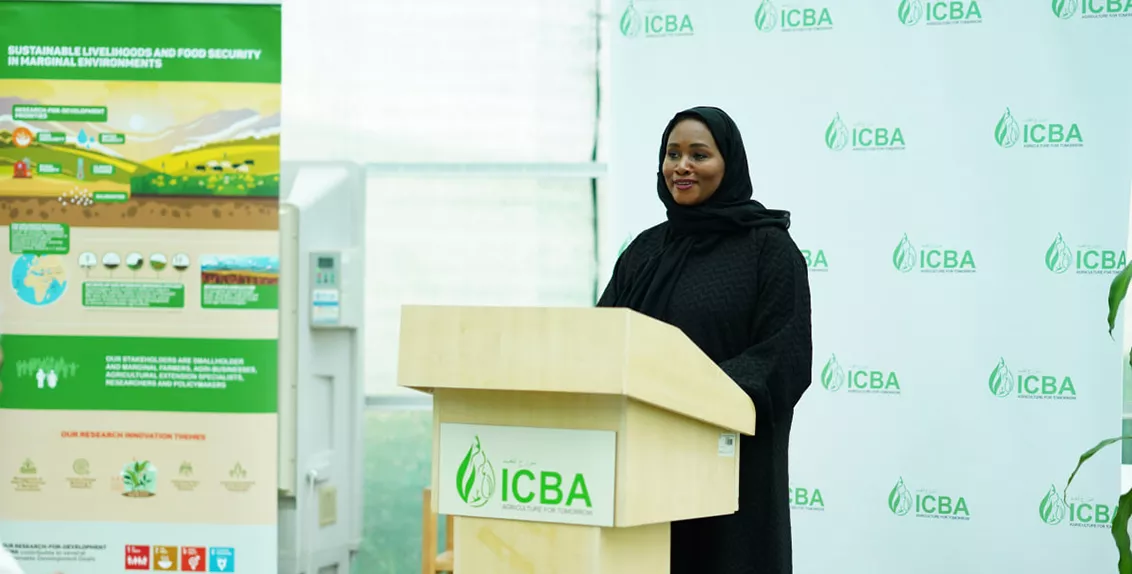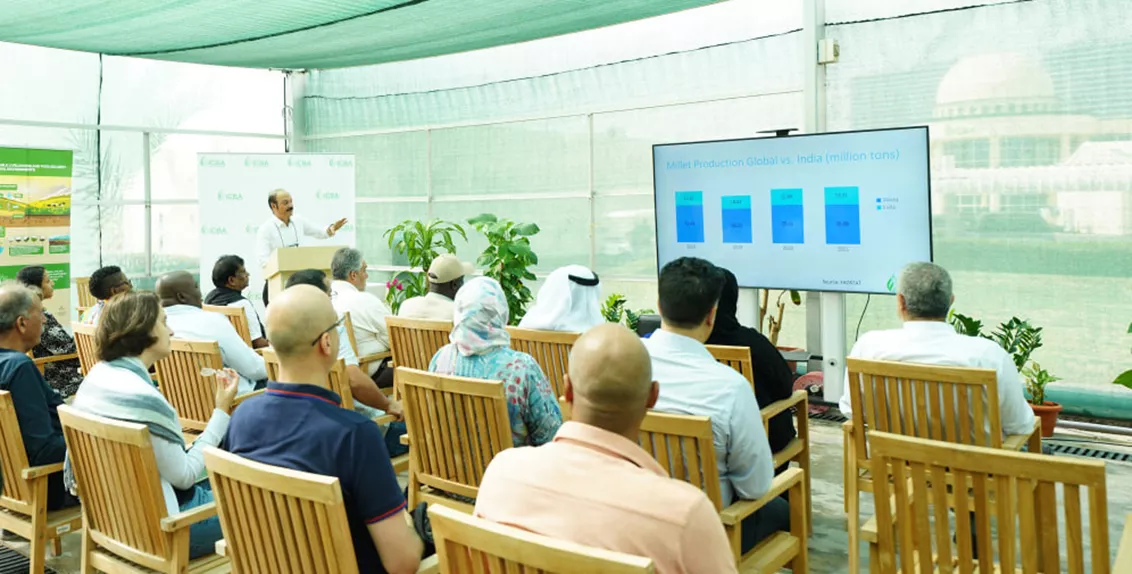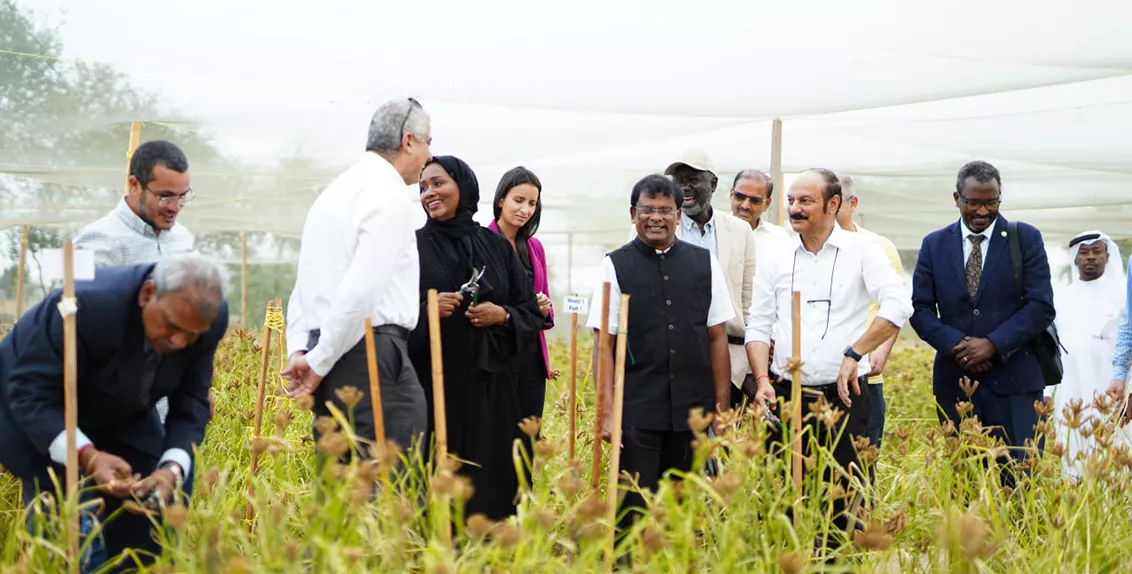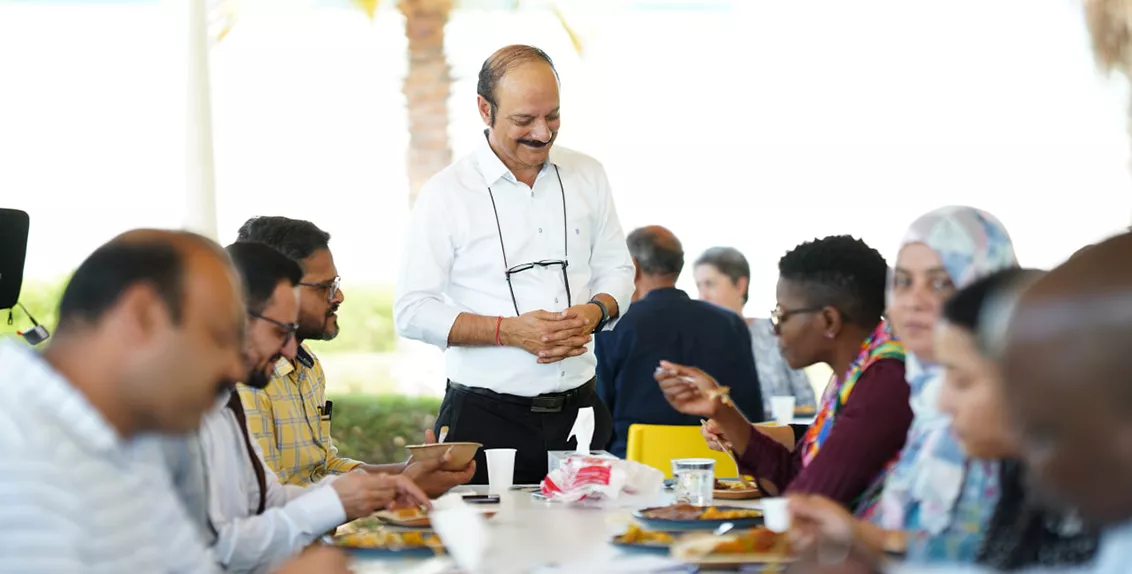ICBA hosts open day to raise awareness, showcase research on millets
21 March 2023
Climate change poses major risks to future global food security and nutrition. Drought and other weather extremes and environmental factors exacerbated by climate change are forecast to impact agriculture and reduce yields of staple crops such as wheat, rice, and maize. But agrobiodiversity holds great potential for mitigating such threats to agriculture in different parts of the world as there are many forgotten and neglected crops which are more tolerant of biotic and abiotic stresses and have better nutritional profiles.
So, it is important to diversify agri-food systems and diets by growing and consuming more resilient and nutritious crops like millets. In fact, not only are millets good for the consumer, but also the farmer and the environment. They are not just nutritious foods. They are also climate-smart foods as their cultivation and consumption helps to reduce agriculture’s effects on the environment.
Hitherto a staple in traditional cooking in India and a number of countries in Africa, millets are becoming popular around the world, including the UAE, due to their health and other benefits. And to build up this momentum, the United Nations declared 2023 the International Year of Millets.
But the International Center for Biosaline Agriculture (ICBA) realized the importance and potential of neglected and underutilized crops early on and has conducted research on them since 1999. For more than two decades now, the center has been at the forefront of research and development on stress-resistant crops that are suited to arid and salt-affected environments. It has identified, tested, and introduced a variety of stress-resistant crops like quinoa, sorghum, pearl millet, and Salicornia in various locations.
To present some of its latest research results on millets and raise awareness about their significance for food security, nutrition, and climate change adaptation globally, ICBA recently organized an open day for different stakeholders in line with the theme of the Year of Sustainability in the UAE “Today for Tomorrow”, the road to COP28 and the International Year of Millets.
Held on 21 March 2023, the event was the first of a series of scientific talks and activities planned for 2023 under the theme of “Climate-resilient Crops of Tomorrow”.
Welcoming participants, Dr. Tarifa Alzaabi, Director General of ICBA, said: “Neglected and underutilized crops like millets can become more than just a healthy food in local diets and serve as a powerful resource in the climate change adaption toolkit. Through its research, ICBA strives to promote climate-resilient crops to enhance and sustain agri-food systems in marginal environments.”
During his presentation, Dr. R. K. Singh, Program Leader on Crop Diversification and Genetics at ICBA, highlighted: “While the previous research at ICBA focused primarily on pearl millet, in late 2020 our scientists began studies on minor millets as they are better adapted to arid and saline conditions under climate change. They have a double advantage as they are more stress-resistant and nutrient-dense. Currently, we have ongoing trials on pearl millet, finger millet, foxtail millet, and proso millet under varying water salinity and irrigation regimes.”
The event was also attended by senior representatives from the Food and Agriculture Organization of the United Nations (FAO); the International Center for Agricultural Research in the Dry Areas (ICARDA); and Zayed University who had a chance to experience the farm-to-fork approach as they harvested some millets in the field and later tasted different millet-based dishes.














